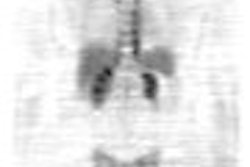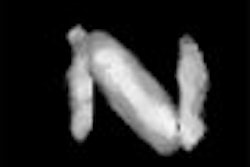Many women are reluctant to comply with guidelines for breast-cancer screening, but a new study explains why some may not get screened regularly. Researchers found that women who suffer from depression are less likely to undergo annual mammograms. The reasons for skipping out on screening may include self-neglect and a self-defeating attitude, as well as feelings of helplessness and hopelessness, according to an article in the Journal of Women's Health.
Dr. Paul Pirraglia and colleagues based their findings on the depressive symptomology and cancer-screening activities (breast and cervical) compiled through the Study of Women's Health Across the Nation (SWAN), which is sponsored by several U.S. agencies including the National Institute on Aging. Pirraglia is from the division of internal medicine at Rhode Island Hospital in Providence. His co-authors are from Massachusetts General Hospital in Boston.
"The indirect health consequences of depression include healthcare-seeking behavior that, paradoxically, leads to subsequent underuse of preventive care," the authors wrote (Journal of Women's Health, July/August 2004, Vol. 13:6, pp. 731-738).
The patient population consisted of 3,297 women ages 42-52 in the SWAN database, who self-reported whether they had a mammogram in the past year. The participants were also assigned a depressive-symptom score based on the Center for Epidemiologic Studies Depression scale (CES-D). The questionnaire assesses a person's mental state in the prior week with the score ranging from less than 16 (low symptom burden) to greater than or equal to 21 (high symptom burden).
According to the results, 14.9% of the women had a high depressive burden and significantly lower odds of having undergone yearly mammography (adjusted odds ratio 0.84, 95% confidence interval 0.73-0.97). The adjusted odds ratio for women with a moderate depressive burden was 0.85 (95% CI 0.86-1.18).
Pirraglia's group noted that the latter group might actually seek out screening, depending on the nature of their type of burden. Patients with dysphoria could actively undergo screening to alleviate cancer fears, they said. The investigators also acknowledged some of the limitations of this study, including the short, one-week depressive-symptom evaluation period.
Nevertheless, higher CES-D scores have been strongly associated with clinically diagnosed depression. Subsequently, "women with more severe depression are more likely to be recognized as such and ... their doctors may be focused on depression management issues." As a result, primary care physicians, ob/gyns, and other referring doctors may not promote regular cancer screening among these patients, the authors concluded.
"Precisely identifying barriers to mammography is necessary to design and maximize effective interventions," wrote Drs. Hillary Bogner and Marsha Wittink in an accompanying editorial. "Evidence suggests ... that assessing depression should be considered with developing breast cancer screening programs (Journal of Women's Health, July/August 2004, Vol. 13:6, pp. 739-742).
In an e-mail to AuntMinnie.com, Pirraglia acknowledged that it is outside the purview of the breast imaging specialists to assess patient depression levels, but "it would be of obvious worth for anyone engaged in the care of a patient to notify the patient's primary care physician about concerns regarding depression," he said.
According to the National Mental Health Association, about 12 million women in the U.S. experience clinical depression annually, with one in every eight women expected to develop clinical depression during her lifetime. However, fewer than half of these women will seek out professional mental health care.
By Shalmali Pal
AuntMinnie.com staff writer
August 31, 2004
Related Reading
Reports to FDA allege damage to breast implants during screening, June 15, 2004
Breast screening could pull double duty for tracking heart disease, June 1, 2004
Breast cancer fears may nix follow-up screening, October 10, 2001
Copyright © 2004 AuntMinnie.com



















